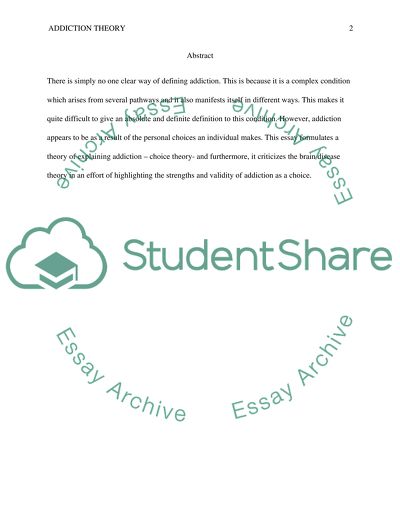Cite this document
(“Addictions Theory- Theoretical Conceptualization Essay”, n.d.)
Retrieved from https://studentshare.org/miscellaneous/1644172-addictions-theory-theoretical-conceptualization
Retrieved from https://studentshare.org/miscellaneous/1644172-addictions-theory-theoretical-conceptualization
(Addictions Theory- Theoretical Conceptualization Essay)
https://studentshare.org/miscellaneous/1644172-addictions-theory-theoretical-conceptualization.
https://studentshare.org/miscellaneous/1644172-addictions-theory-theoretical-conceptualization.
“Addictions Theory- Theoretical Conceptualization Essay”, n.d. https://studentshare.org/miscellaneous/1644172-addictions-theory-theoretical-conceptualization.


